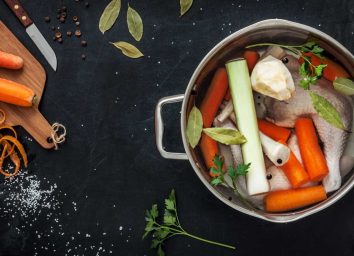6 Surprising Foods That Keep Your Body Warmer
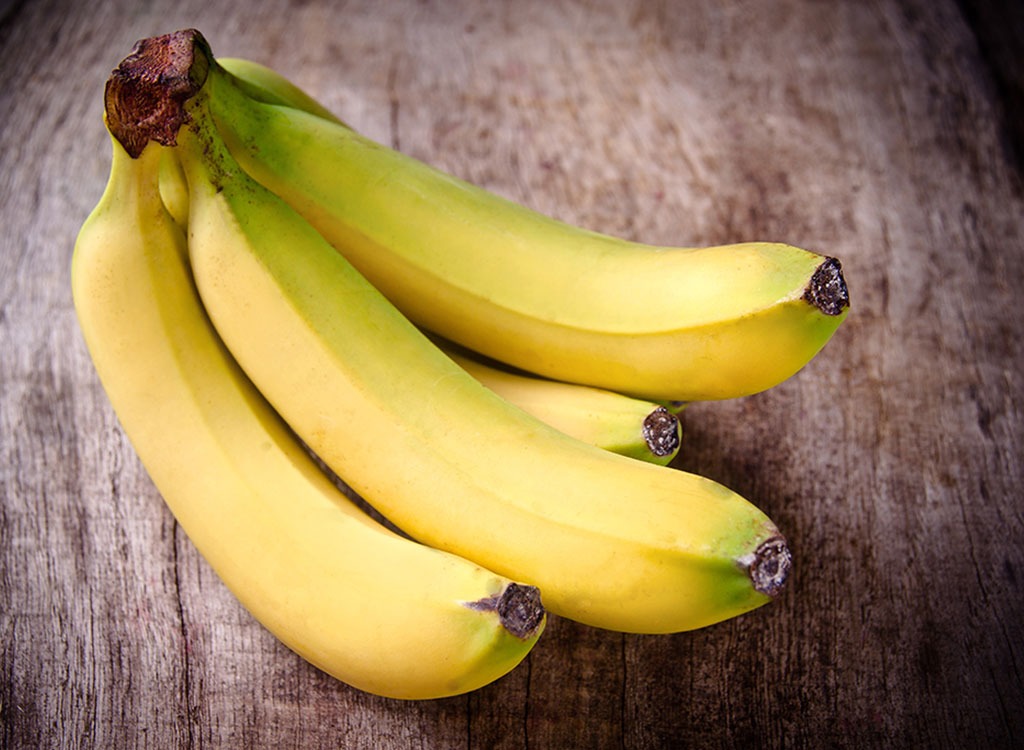
As the temperature outside continues to drop, you’re probably layering on mittens, scarves and big cozy sweaters to shield yourself from the elements—and we’re doing the same! But what you eat could actually help by regulating your internal body temperature. And no, it’s not just soup, hot tea, and warm sammies. These foods are so incredibly surprising but are backed by scientific data to help convince you.
We looked over the science and spoke to Lauren Minchen MPH, RDN, CDN, a Registered Dietitian and Nutritionist based in New York City, about which foods may make brisk days more manageable. Read on to learn more and discover healthy and delicious ways to eat each one.
Iced Coffee

Yup. You read that right: Iced—not just hot—coffee can keep you toasty on cold mornings. While it may seem counterintuitive, it’s not the hot temperature of the coffee that warms you, it’s the caffeine. “Caffeine increases metabolism by stimulating the release of fatty acids from the body’s fat tissues, which in turn can increase body temperature,” explains Minchen.
Bonus: Add low-fat, Vitamin D-fortified milk to your morning cup. A 2011 American Journal of Clinical Nutrition study found the nutrients increase diet-induced thermogenesis (the process of converting calories to heat). The result: You feel warmer from the inside out.
Lean Meats
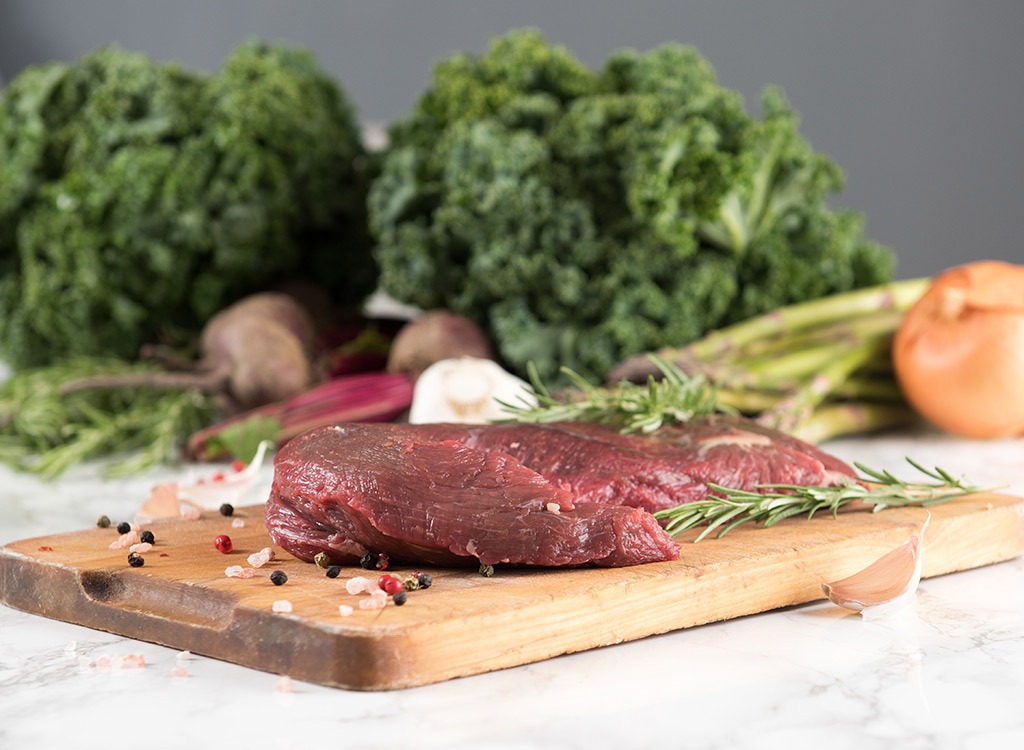
If you always seem to have cold hands and feet, you may have iron deficiency (or, anemia). Some people with the condition get enough of the nutrient, but have trouble absorbing it; others simply aren’t eating enough iron-rich foods. If you chat with your doctor and find out it’s the latter, adding foods rich in the mineral can help warm you up. Lean beef, poultry and pork tenderloin all fit the bill while remaining low in saturated fat. Although there are plant-based sources of the nutrient, like iron-fortified cereals and beans, the body absorbs more iron from meat than it does from other sources, notes Minchen. And don’t forget to add a tangerine into your spinach salad mix, since the citrus fruit helps your body to absorb the iron from your spinach.
Whole Grains & Complex Carbs

“Because of the fiber, whole grains and other complex carbs like potatoes and lentils require more energy to break down than simple carbs like cookies and white bread. This process not only keeps you fuller longer, but because the body is working so hard to digest your food, it may also increase body heat,” says Minchen.
Don’t believe it? Scientists confirm it true. A 2011 study published in Nutrition found that thermogenesis increases after carb-rich meals. That’s not permission to go carb-crazy, though; find out the worst carb habits for weight loss!
Cumin
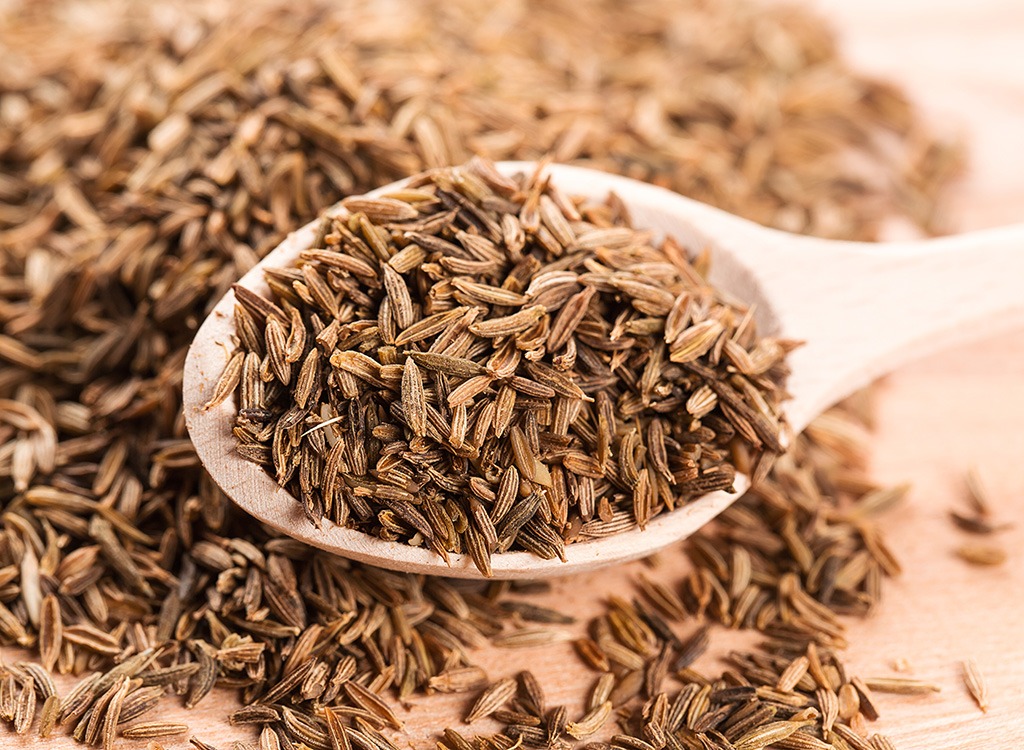
Despite popular belief, spicy foods—like hot peppers—won’t help keep you warm. Since they make you perspire, they actually cool you down—not exactly what you want when it’s a blizzardy tundra outside. Cumin, on the other hand, generates less intense heat that will warm you up without drenching you in sweat. How does it work? That’s not exactly known yet, says Minchen. But we’re confident plenty of scientists are working to understand the mechanism.
Ginger

If you typically leave the ginger behind on your sushi plate, you could be missing out on some body warming benefits. A 2012 study published in the journal Metabolism found that the spice enhances thermogenesis. Scientists also found that it reduced feelings of hunger, suggesting that it may play a potential role in how to keep the weight off. While more studies need to be done to confirm their suspicions, it sounds like a win-win to us. Ginger can be added to meat dishes, soups and smoothies with equally delicious results.
Bananas
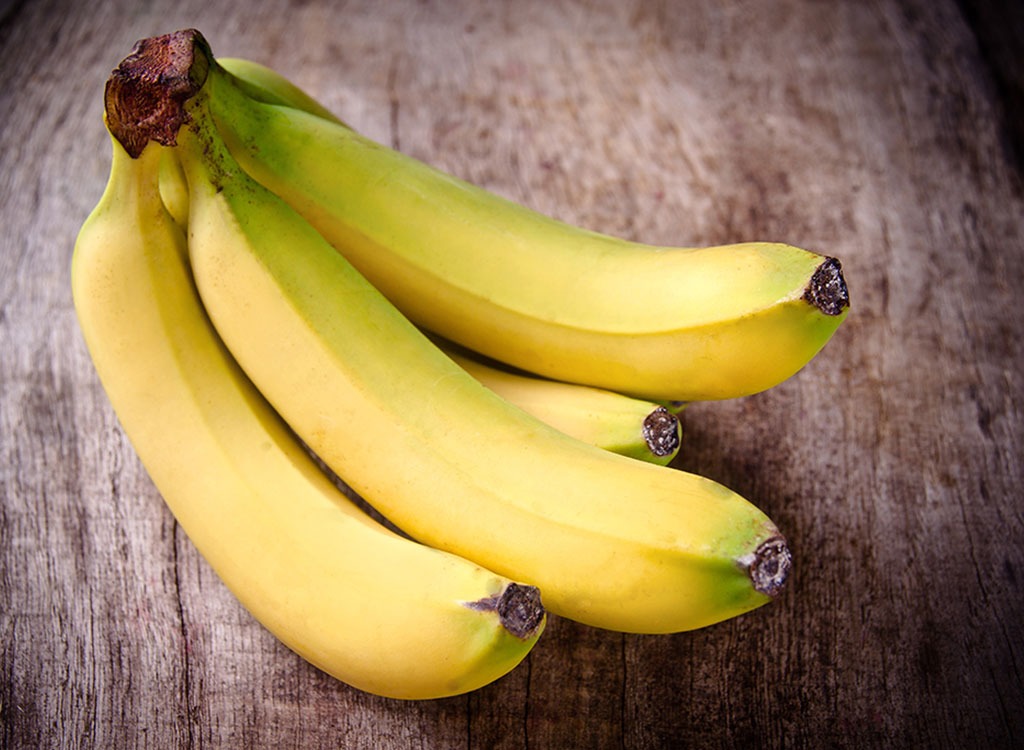
This uber-popular fruit is rich in B vitamins and magnesium, which “helps the thyroid and adrenal glands regulate the body’s temperature in cold weather,” explains Minchen. One large banana serves up about ten percent of the day’s magnesium and a healthy dose of B vitamins. Add it to your breakfast cereal or top with two tablespoons of natural peanut butter for an afternoon snack. Make a PB and banana sandwich on whole grain bread to add more magnesium and B vitamins to your plate. Aren’t the benefits of bananas amazing?

